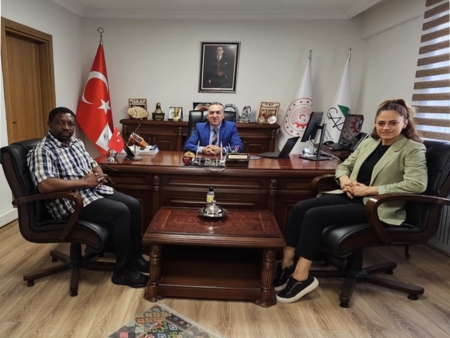Country: Türkiye
Integrated Resource Efficiency in Agriculture and Agro-Industries in Southeast Anatolia Project which was initiated in 2016 with the aim of modelling and promoting the most efficient use of resources including particularly water and energy in agricultural production and agricultural product processing as dominant sectors in GAP Region and increase efficiency in primary production and processing.
Based on the analysis stated above, cotton has been found to be one of the strategic agricultural products for the region. In 2019, GAP RDA has applied to The Better Cotton Initiative (BCI) Growth and Innovation Fund (GIF) as an implementation partner to increase resource efficiency in cotton production and to contribute to training activities. The purpose of this initial partnership was to implement a pilot program to enable farmers to grow Better Cotton and make continuous improvement in their farm management practices.
Following the successful pilot program, the duration of the project has been extended until end of 2027 to “Enlarge Better Cotton in GAP Region” with the additional funding received from BCI GIF and EBRD.
The midterm evaluation (MTE) the project aims to:
- Measure to what extent the project has contributed to improvement of the competitiveness of GAP Region.
- Measure project’s degree of implementation, efficiency and quality delivered on expected results (outputs), against what was originally planned or formally revised.
- Measure the project’s contribution to the objectives set in the UNDP Country Program Document (CPD), United Nations Sustainable Development Cooperation Framework (UNSDCF) for 2021-2025, 10th and 11th National Development Plans, and SDGs along with the Turkish Industrial Strategy Document (2015-2018), Turkish National Rural Development Strategy (2014-2020), Strategic Plan of Ministry of Forestry and Water Affairs (2013-2017).
- To assess both negative and positive factors that have facilitated or hampered progress in achieving the project outcomes, including external factors/environment, weakness in design, management, and resource allocation.
- Assess the extent to which the application of the rights-based approach and gender mainstreaming are integrated within planning and implementation of the Project.
- Generate substantive evidence-based knowledge by identifying best practices and lessons learned that could be useful to other development interventions at national (scale up) and international level (replicability) and to support the sustainability of the project.
Duration: 10/2024 – 12/2024
Client: UNDP

